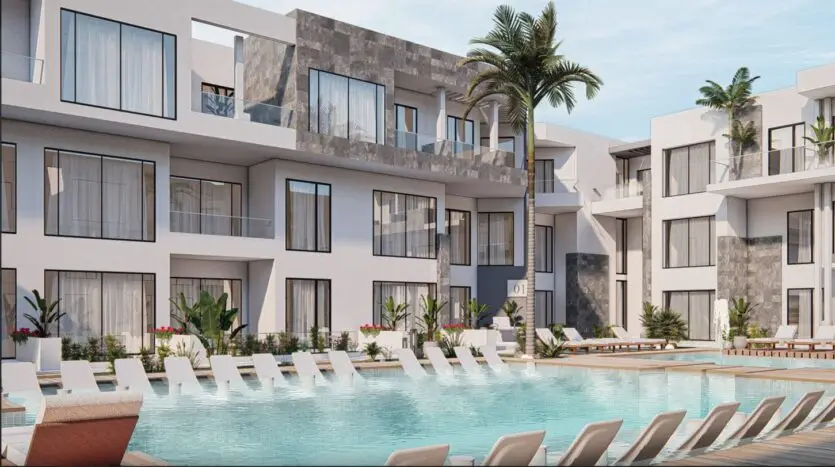Financing Your Egyptian Property: Mortgage Options for Expats
Introduction
Buying real estate in Egypt is increasingly accessible for international investors, especially in resort zones like Soma Bay, Sahl Hasheesh, and El Gouna. While many buyers opt for cash or installment plans, growing interest in mortgage options for expats in Egypt is reshaping the market. Whether you’re purchasing a holiday home or long-term investment, understanding your financing choices as a non-resident is key to making a smart, sustainable purchase in 2025.
Why Financing Options Matter
Historically, Egypt’s real estate market operated mostly on cash and developer-backed installment plans. However, with more foreigners purchasing higher-value homes and villas, the need for structured financing is growing.
Key trends in 2025:
- Demand for mortgages among foreign buyers is rising—especially in the Red Sea region
- Developers offer installment terms up to 8 years, interest-free in many cases
- Select Egyptian banks are now extending non-resident mortgage products with specific terms
- Buyers from Europe and the Gulf are seeking financing to diversify cash flow and leverage favorable exchange rates
1. Developer Installment Plans (Most Common)
The vast majority of foreign buyers in Egypt finance their property through installment plans directly from the developer.
Key Features:
- 10%–30% down payment
- 3–8 year payment periods
- Typically interest-free
- Payments in USD, EUR, or EGP depending on buyer origin and developer policy
Pros:
- No need for local bank account or credit history
- No mortgage registration or legal mortgage approval process
- Fast, simple contract execution
- Available in top projects in Soma Bay, El Gouna, and Sahl Hasheesh
Best for:
Buyers seeking flexibility, no debt ties to local banks, and a fixed cost of ownership over time.
2. Bank Mortgages for Expats in Egypt
Several Egyptian banks offer mortgages to foreigners, though they come with specific conditions and documentation requirements.
Banks with expat mortgage offerings (as of 2025):
- Banque Misr
- Commercial International Bank (CIB)
- QNB AlAhli
Terms & Conditions:
- Property must be in a registered compound or titled with a Green Contract
- Loan-to-value (LTV) ratio: 50%–60%
- Repayment periods: up to 15 years
- Interest rates: 14%–16% (local currency)
- Borrower must show international income, valid residency or visa, and proof of funds
Pros:
- Suitable for high-value homes or villas with clear titles
- Enables leverage and cash flow diversification
- Builds local credit record for future investment
Cons:
- Limited property eligibility
- Lengthy approval process
- High local interest rates vs. international lending norms
Best for:
Expats living in Egypt long-term, dual nationals, or foreigners purchasing titled resale properties with full legal registration.
3. Offshore Financing or Home Country Loans
Some buyers choose to finance their Egyptian property via loans or equity release in their home country, then use those funds to purchase in cash.
Why it works:
- Lower interest rates in UK, Europe, or GCC banks
- Faster approvals with established banking relationships
- Flexibility to purchase off-plan or ready units without local restrictions
Considerations:
- Currency conversion risks
- Tax implications depending on jurisdiction
- May require cash-out refinancing or personal guarantees
Best for:
Buyers with strong credit standing abroad and those purchasing investment properties to generate income in Egypt.
Legal and Financial Considerations
Regardless of how you finance your Egyptian property, it’s important to:
- Work with a licensed local lawyer to verify contracts and property ownership
- Confirm if the unit qualifies for a Green Contract (registered title)
- Understand the residency permit thresholds (typically $100,000+ investment value)
- Account for currency exchange fluctuations when committing to EGP-based payment terms
- Clarify resale rights, penalties, and refund terms in any installment or mortgage agreement
Popular Projects Offering Developer Financing (2025)
- Mesca Residences (Soma Bay) – 5–7 year payment plans, 10% down
- Bay Village (Sahl Hasheesh) – 6-year plan, units from $70,000
- Ancient Sands (El Gouna) – Flexible terms, sea-view homes with long-term ROI
- Makadi Heights (Orascom) – Large community with 8-year payment options for expats
Conclusion
Financing a home in Egypt is no longer limited to cash buyers. With multiple mortgage options for expats, including developer installments and bank loans, you can find a structure that matches your investment strategy and budget. Whether you’re planning to relocate, retire, or invest, Egypt’s flexible and growing real estate finance ecosystem supports your vision.
Looking for financing options tailored to your situation?
Explore expat-friendly properties on Buildix or request a free consultation with a local mortgage and legal expert to find the right solution.
Mini FAQ
Can foreigners get mortgages in Egypt?
Yes, select banks offer mortgages to expats under certain conditions. Most buyers, however, opt for developer installment plans.
What is the easiest way to finance property in Egypt as a foreigner?
Developer installment plans are the most accessible, with 3–8 year terms and minimal documentation.
Are mortgage rates in Egypt high?
Yes, local bank mortgages come with rates between 14–16%, so many buyers prefer offshore financing or cash-based installment plans.





